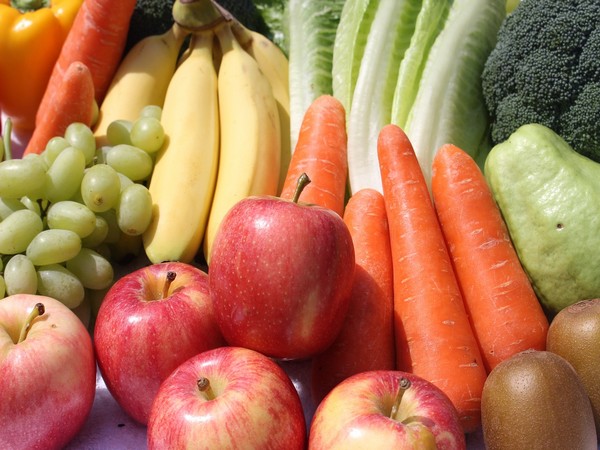When it comes to a child’s meals, a parent always makes sure that children’s meals are well-balanced and packed with essential nutrients.
It’s difficult trying to find out what to feed to their small bodies. While when it comes to picky eaters, it is quite challenging to persuade them to try new foods, incorporating a variety of nutritious options into their meals is essential. Picky eating is common among children, and it may take several attempts before they develop a taste for certain foods. Try to be patient & offer new foods alongside familiar ones and avoid pressuring or forcing your child to eat. Moreover, just because it is presented does not mean that your children will consume it. Growing children require nutritious food, including good fats for their brains, calcium for their bones, and all of the vitamins and minerals that vegetables provide, among other things. Here are some valuable food items which you must add in your child’s meals for their better growth.
Fruits and Vegetables
Including a wide range of fruits and veggies in your child’s meals is essential for their overall health. These colorful and nutrient-rich foods provide essential vitamins, minerals, and antioxidants. Introduce a variety of fruits and vegetables, such as berries, citrus fruits, leafy greens, carrots, and bell peppers, to ensure a diverse nutrient intake. Sneak them into smoothies, juice, salads, soups, or even as snacks to make them more
appealing.
Whole Grains
Replace refined grains with whole grains to provide your child with a healthy dose of fiber, vitamins, and minerals. Whole grain options like brown rice, whole wheat bread, quinoa, and oats are excellent choices. They help maintain stable blood sugar levels, provide sustained energy, and support digestion. Swap regular pasta with whole wheat or incorporate quinoa into stir-fries to introduce your child to these wholesome options.
Proteins
Protein is crucial for the growth and repair of body tissues. Include lean protein sources such as poultry, fish, eggs, tofu, legumes, and nuts in your child’s meals. These foods provide essential amino acids, iron, and zinc, which are vital for healthy development. Add some grilled chicken to salads, make bean-based burgers, or include fish in tacos to diversify their protein intake. Also, add some healthy fats into your child’s diet by spreading avocado on whole grain toast, sprinkling nuts and peanut butter, seeds on yogurt, or using olive oil in salad dressings.
Dairy Products
Dairy products like milk, yogurt are excellent sources of calcium and vitamin D and make bones & teeth strong. If your child is lactose intolerant or follows a plant-based diet, opt for dairy alternatives fortified with calcium and vitamin D, such as soy or almond milk. Include these in their meals, like smoothies or whole grain cereal, to ensure an adequate calcium intake. A balanced diet ensures that your child receives the necessary nutrients for optimal growth and development. Intake of all these above components supports their immune system, helping them fight off illnesses and infections and also prevent deficiencies and promotes a healthy weight, reducing the risk of chronic diseases later in life. By prioritizing a well-balanced diet and incorporating these essential components, you are setting your child up for a lifetime of healthy eating habits and overall well-being. Try these tips to make food more presentable & fun for your child. Children are more likely to try new foods if they see their parents enjoying them. Be a role model by including a wide range of healthy foods in your own meals. Try to present the food in an appealing way thus making it more enticing for children.
Use cookie cutters to create fun shapes with fruits and vegetables, or involve your child in meal preparation to make it an interactive and enjoyable experience. Offer variety by introducing a wide range of foods to expand your child’s palate. Rotate fruits, vegetables, proteins, and grains to keep meals interesting and ensure a diverse nutrient intake.
In addition, introducing these components into your child’s meals may require some creativity and patience. Involve your child in meal planning and preparation, allowing them to explore different flavors and textures. Make mealtimes enjoyable and encourage family meals whenever possible, as this can foster healthy eating habits and a positive relationship with food.
Final Thoughts
Incorporating nutrient-rich foods into your child’s meals is essential for their overall health and well-being. By including a variety of fruits, vegetables, whole grains, lean proteins, and healthy fats, you provide the necessary nutrients for growth, development, and optimal functioning of their bodies and minds. The benefits of a balanced diet extend beyond their immediate well-being, setting the stage for a healthier future. With patience, creativity, and leading by example, you can instill lifelong healthy eating habits in your child, ensuring they have a strong foundation for a vibrant and thriving life.
By Dr Susanta K Badatya who is a Neonatologists and Pediatrics at Apollo Cradle & Children’s Hospital.























